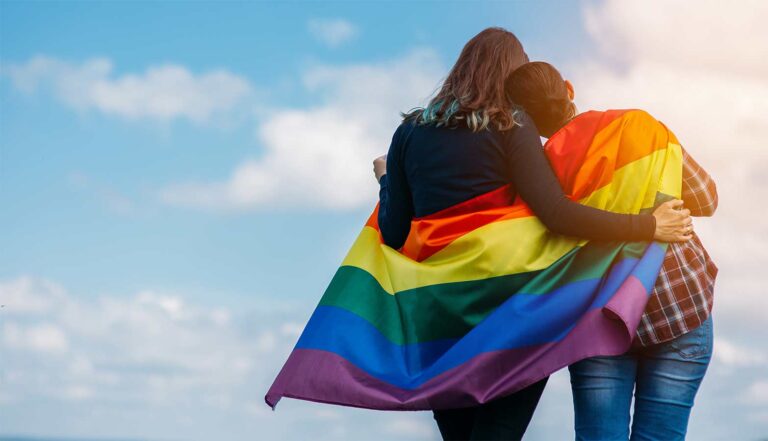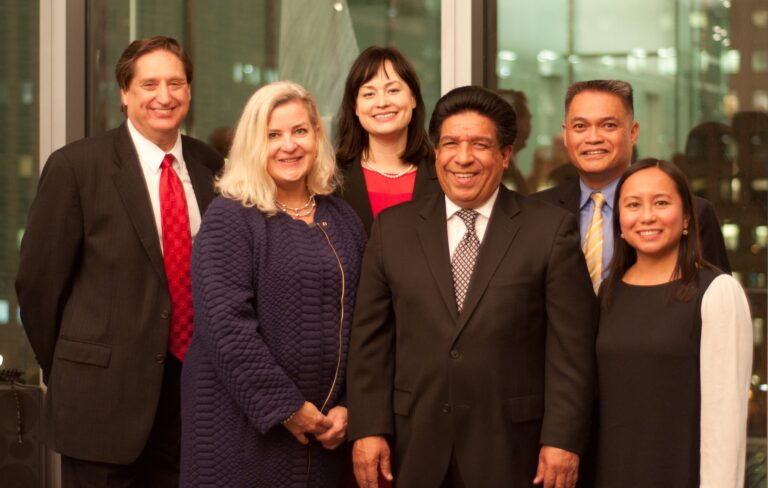Diversity, Equity, and Inclusion Resources
Books
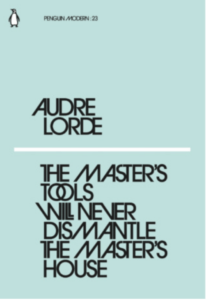
Essay: “The Master’s Tools Will Never Dismantle the Master’s House” by Audre Lorde
From the self-described 'black, lesbian, mother, warrior, poet', these soaring, urgent essays on the power of women, poetry, and anger are filled with darkness and light.
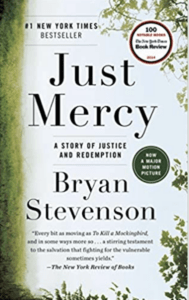
Just Mercy by Bryan Stevenson
Just Mercy is at once an unforgettable account of an idealistic, gifted young lawyer’s coming of age, a moving window into the lives of those he has defended, and an inspiring argument for compassion in the pursuit of true justice.
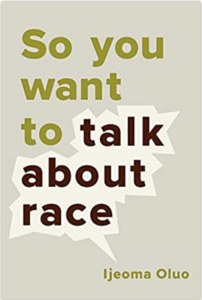
So You Want To Talk About Race by Ijeoma Oluo
In So You Want to Talk About Race, Ijeoma Oluo guides readers of all races through subjects ranging from intersectionality and affirmative action to "model minorities" in an attempt to make the seemingly impossible possible: honest conversations about race and racism, and how they infect almost every aspect of American life.
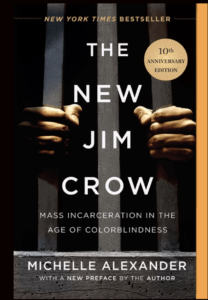
The New Jim Crow by Michelle Alexander
The New Jim Crow is a stunning account of the rebirth of a caste-like system in the United States, one that has resulted in millions of African Americans locked behind bars and then relegated to a permanent second-class status—denied the very rights supposedly won in the Civil Rights Movement.
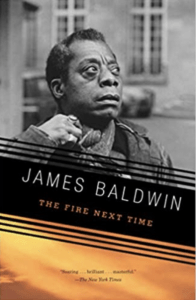
The Fire This Time by James Baldwin
A national bestseller when it first appeared in 1963, The Fire Next Time galvanized the nation, gave passionate voice to the emerging civil rights movement—and still lights the way to understanding race in America today.
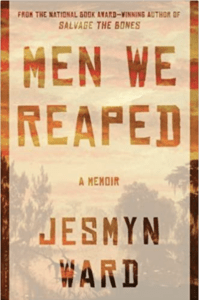
Men We Reaped by Jesmyn Ward
Jesmyn grew up in poverty in rural Mississippi. She writes powerfully about the pressures this brings, on the men who can do no right and the women who stand in for family in a society where the men are often absent. She bravely tells her story, revisiting the agonizing losses of her only brother and her friends. As the sole member of her family to leave home and pursue higher education, she writes about this parallel American universe with the objectivity distance provides and the intimacy of utter familiarity.
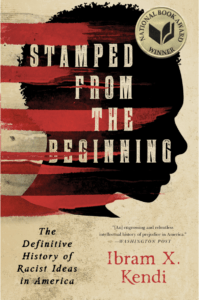
Stamped From The Beginning by Ibram X. Kendi
In this deeply researched and fast-moving narrative, Kendi chronicles the entire story of anti-Black racist ideas and their staggering power over the course of American history. Stamped from the Beginning uses the life stories of five major American intellectuals to offer a window into the contentious debates between assimilationists and segregationists and between racists and antiracists.

Fire This Time by Jesmyn Ward
In this bestselling, widely lauded collection, Jesmyn Ward gathers our most original thinkers and writers to speak on contemporary racism and race, including Carol Anderson, Jericho Brown, Edwidge Danticat, Kevin Young, Claudia Rankine, and Honoree Jeffers. “An absolutely indispensable anthology” (Booklist, starred review), The Fire This Time shines a light on the darkest corners of our history, wrestles with our current predicament, and imagines a better future.
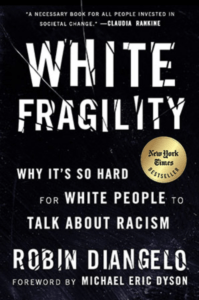
White Fragility: Why It’s So Hard to Talk to White People About Racism by Dr. Robin DiAngelo
Referring to the defensive moves that white people make when challenged racially, white fragility is characterized by emotions such as anger, fear, and guilt, and by behaviors including argumentation and silence. These behaviors, in turn, function to reinstate white racial equilibrium and prevent any meaningful cross-racial dialogue. In this in-depth exploration, DiAngelo examines how white fragility develops, how it protects racial inequality, and what we can do to engage more constructively.
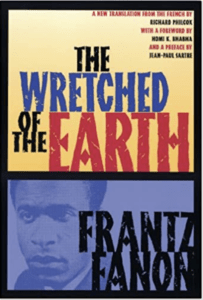
The Wretched of the Earth by Frantz Fanon
A distinguished psychiatrist from Martinique who took part in the Algerian Nationalist Movement, Frantz Fanon was one of the most important theorists of revolutionary struggle, colonialism, and racial difference in history. Fanon’s masterwork is a classic alongside Edward Said’s Orientalism or The Autobiography of Malcolm X, and it is now available in a new translation that updates its language for a new generation of readers. The Wretched of the Earth is a brilliant analysis of the psychology of the colonized and their path to liberation.
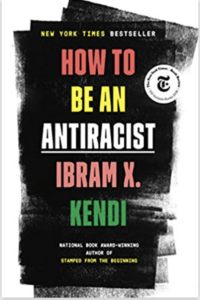
How to be an Antiracist by Ibram X. Kendi
He relates his evolving concept of racism through the events of his own life, touching on observations from classes he has taught, contemporary events such as the O. J. Simpson robbery case and 2000 United States presidential election, and through historical events such as the scientific proposals of polygenism in Europe in the 1600s and racial segregation in the United States. Kendi further details the manifestations of racism, such as scientific racism, colorism and their intersection with demographics including gender, class and sexuality.
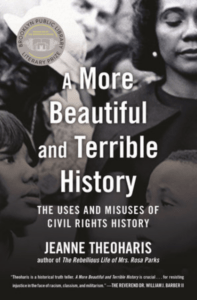
A More Beautiful and Terrible History: The Uses and Misuses of Civil Rights History by Jeanne Theoharis
The civil rights movement has become national legend, lauded by presidents from Reagan to Obama to Trump, as proof of the power of American democracy. This fable, featuring dreamy heroes and accidental heroines, has shuttered the movement firmly in the past, whitewashed the forces that stood in its way, and diminished its scope. And it is used perniciously in our own times to chastise present-day movements and obscure contemporary injustice. In A More Beautiful and Terrible History award-winning historian Jeanne Theoharis dissects this national myth-making, teasing apart the accepted stories to show them in a strikingly different light.
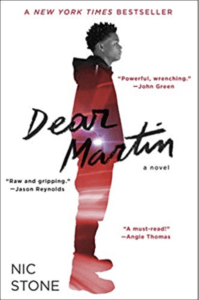
Dear Martin by Nic Stone
Justyce McAllister is a good kid, an honor student, and always there to help a friend—but none of that matters to the police officer who just put him in handcuffs. Despite leaving his rough neighborhood behind, he can't escape the scorn of his former peers or the ridicule of his new classmates.Justyce looks to the teachings of Dr. Martin Luther King Jr. for answers. But do they hold up anymore? He starts a journal to Dr. King to find out.Then comes the day Justyce goes driving with his best friend, Manny, windows rolled down, music turned up—way up, sparking the fury of a white off-duty cop beside them. Words fly. Shots are fired. Justyce and Manny are caught in the crosshairs. In the media fallout, it's Justyce who is under attack.
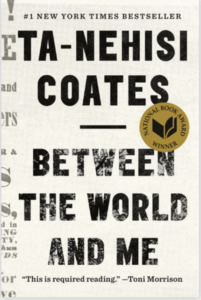
Between the World and Me by Ta-Nehisi Coates
In a profound work that pivots from the biggest questions about American history and ideals to the most intimate concerns of a father for his son, Ta-Nehisi Coates offers a powerful new framework for understanding our nation’s history and current crisis. Americans have built an empire on the idea of “race,” a falsehood that damages us all but falls most heavily on the bodies of black women and men—bodies exploited through slavery and segregation, and, today, threatened, locked up, and murdered out of all proportion. What is it like to inhabit a black body and find a way to live within it? And how can we all honestly reckon with this fraught history and free ourselves from its burden?
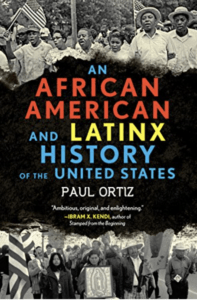
An African American and Latinx History of the United States by Paul Ortiz
Drawing on rich narratives and primary source documents, Ortiz links racial segregation in the Southwest and the rise and violent fall of a powerful tradition of Mexican labor organizing in the twentieth century, to May 1, 2006, known as International Workers’ Day, when migrant laborers—Chicana/os, Afrocubanos, and immigrants from every continent on earth—united in resistance on the first “Day Without Immigrants.” As African American civil rights activists fought Jim Crow laws and Mexican labor organizers warred against the suffocating grip of capitalism, Black and Spanish-language newspapers, abolitionists, and Latin American revolutionaries coalesced around movements built between people from the United States and people from Central America and the Caribbean. In stark contrast to the resurgence of “America First” rhetoric, Black and Latinx intellectuals and organizers today have historically urged the United States to build bridges of solidarity with the nations of the Americas.
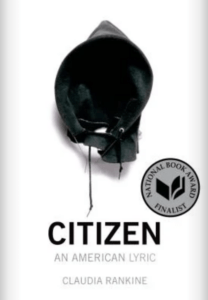
Citizen: An American Lyric by Claudia Rankine
Claudia Rankine's bold new book recounts mounting racial aggressions in ongoing encounters in twenty-first-century daily life and in the media. Some of these encounters are slights, seeming slips of the tongue, and some are intentional offensives in the classroom, at the supermarket, at home, on the tennis court with Serena Williams and the soccer field with Zinedine Zidane, online, on TV-everywhere, all the time. The accumulative stresses come to bear on a person's ability to speak, perform, and stay alive. Our addressability is tied to the state of our belonging, Rankine argues, as are our assumptions and expectations of citizenship. In essay, image, and poetry, Citizen is a powerful testament to the individual and collective effects of racism in our contemporary, often named "post-race" society.
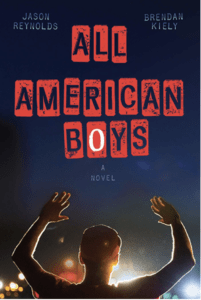
All American Boys by Jason Reynolds and Brian Kiely
Written in tandem by two of our great literary talents, Jason Reynolds and Brendan Kiely. The story is told in Rashad and Quinn’s alternating perspectives, as they grapple with the complications that spin out of this violent moment and reverberate in their families, school, and town. Over the course of one week, Rashad tries to find the strength to accept his role as the symbolic figure of the community’s response to police brutality, and Quinn tries to decide where he belongs in a town bitterly divided by racial tension. Ultimately, the two narratives weave back together, in the moment in which the two boys, now changed, can actually see each other—the first step for healing and understanding in a country still deeply sick with racial injustice. Reynolds pens the voice of Rashad, and Kiely has taken the voice of Quinn.
Videos, Movies, and Documentaries
6 ABC News Our America: Living While Black
“Our America: Living While Black” is a five-part ABC Owned Television Stations docuseries that goes beyond the statistics to explore inequalities facing Black families across the country in institutions related to policing, health care, education and housing. Explore the extraordinary personal journeys of Black Americans rising above obstacles and pushing through systemic racism to achieve personal and professional success. Their stories are as much about surviving, thriving, and working toward a better future for their families and this country.
NACDA: The Intersection of Race, Student-Athletes and College Athletics in America
NACDA Webinar June 24, 2020 Featuring Maria Taylor (ESPN), Allen Greene (Auburn), China Jude (Wyoming) and Warde Manuel (Michigan)
How My Coloring Book Taught Me About Racism (TED Talk)
Coloring book is a poem examining the simplicity of humanity made complicated by human constructs of race and racism. Within it Tiffany returns us back to when we were children and unafraid to embrace all colors without limitations. The poem invites us to reinvent our relationships with one another by returning to our childhood mindset.
Movie, “I Am Not Your Negro” available free on Amazon Prime
Director Raoul Peck envisions the book James Baldwin never finished, Rember This House. It is a Journey into black history that connects the Civil Rights movement to #BlackLivesMatter. It questions black representation in Hollywood and Beyond.
Coming to Terms with Racism's Inertia: Ancestral Accountability
When it comes to race relations there is often the argument "Well I didnt own slaves" as a dismissive attempt to seperate onesself from the effects and realities of the racial divide in the United States. In this talk Rachel Cargle addresses the modern manifestations of the racism the US was built on and calls for more intenional accountability, allyship and antiracist action. Rachel Elizabeth Cargle is an Ohio born writer and lecturer. Her activist and academic work are rooted in providing intellectual discourse, tools, and resources that explore the intersection of race and womanhood.
The Renewal Project: Seven videos that help explain racism and how to be anti-racist
If books aren't in your budget or attention span, watch one or all of these videos about anti-racism and what you can do to be an ally.
Emmanuel Acho: Uncomfortable Conversations with a Black Man
NFL Commissioner, Roger Goodell, sits down with Emmanuel Acho to have an Uncomfortable Conversation with a Black Man. Emmanuel asks Goodell what he would say to Kaepernick and how he feels about the National Anthem Protests in the NFL.
13th (Netflix)
13th is a 2016 American documentary film by director Ava DuVernay. The film explores the "intersection of race, justice, and mass incarceration in the United States;" It is titled after the Thirteenth Amendment to the United States Constitution, adopted in 1865, which abolished slavery throughout the United States and ended involuntary servitude except as a punishment for conviction of a crime.
Kimberle Crenshaw: The Urgency of Intersectionality (TED Talk)
Now more than ever, it's important to look boldly at the reality of race and gender bias -- and understand how the two can combine to create even more harm. Kimberlé Crenshaw uses the term "intersectionality" to describe this phenomenon; as she says, if you're standing in the path of multiple forms of exclusion, you're likely to get hit by both. In this moving talk, she calls on us to bear witness to this reality and speak up for victims of prejudice.
NCAA Diversity & Inclusion YouTube Channel
Explore Diversity and Inclusion further with a series of videos from the NCAA Diversity and Inclusion Committee.
11 Shows and Documentaries To Help You Learn About Racial Injustice and Police Brutality (TV Guide)
To help you learn more and cut through the white noise, here's a list of some great series and documentaries that center black perspectives and are a strong starting point for understanding these pressing social issues -- and how all Americans are affected by them.
The Rush: NFL's Sam Acho believes it's not black & white, it's America vs. Racism
Jared Quay and Sam Acho talk about racism in the NFL and America.
Articles
Bill Russell: Racism is not a Historical Footnote
Read HereYawo Brown: "The subtle linguistics of polite white supremacy"
Read HereNew York Times Magazine: 1619 Project
Read HereDennis Mitchell: "Track & Field is Diversity, a Value Worth Standing up for"
Read HereVictoria Alexander: "Anti-Racist Resource Guide"
Read HereChristina Larson: "Black Scientists Call out Racism and Counter it"
Read HereIan McKinnon: "It's time to restructure police departments so they truly serve and protect"
Read HereSam Acho: "Upstairs and Downstairs"
Read HereAnna Kegler: "The sugarcoated language of white fragility"
Read HereDawn Staley: "Black People are Tired"
Read HereDr. Martin Luther King Jr.: "Letter from a Birmingham Jail"
Read HereAutumn Gupta & Brianna Wallace: "Justice in June" resources
Read HereAlexis Williams: "Your black friends feel fear every day. Every single day. Use your voice to help"
Read HereGarnette Cadogan: "Walking while Black"
Read HereAngel Parker: "What about the rapists and murderers"
Read HereIbram X. Kendi: "Stop blaming Black people for dying of the coronavirus"
Read HereAdrienne Van Der Valk & Anya Malley: "What’s My Complicity? Talking White Fragility With Robin DiAngelo"
Read HereChris Bosh: Let them Vote
Read HereTa-Nehisi Coates: "The Case for Reparations"
Read HereReni Eddo-Lodge: "Why I’m no longer talking to white people about race"
Read HerePeggy McIntosh: "White Privilege: Unpacking the Invisible Knapsack" (PDF)
Read HereToure F. Reed: "Why I’m Still Thinking About the Amy Cooper “Black Birder” Episode in Central Park"
Podcasts
Jemele Hill, Jemele Hill is Unbothered: A Spotify Original Podcast
Award-winning journalist and culture critic Jemele Hill interviews the most compelling figures in news, pop culture, politics and sports. Expect unbothered and unfiltered conversations. New episodes every Monday.
Andrew Ti and Tawny Newsome, Yo, Is This Racist?
Yo, Is This Racist?, hosted by Andrew Ti, creator of the popular blog of the same name, is now a weekly podcast! Every Wednesday, Ti, co-host Tawny Newsome, and their guests answer questions from fan-submitted voicemails and emails about whether or not something is, in fact, racist.
Reni Eddo-Lodge and Renay Rich, About Race with Reni Eddo-Lodge
From the author behind the bestselling Why I’m No Longer Talking to White People About Race comes a podcast that takes the conversation a step further.Featuring key voices from the last few decades of anti-racist activism, About Race with Reni Eddo-Lodge looks at the recent history that lead to the politics of today.
Wesley Morris and Jenna Wortham, Still Processing
Step inside the confession booth of Wesley Morris and Jenna Wortham, two culture writers for The New York Times. They devour TV, movies, art, music and the internet to find the things that move them — to tears, awe and anger. Still Processing is where they try to understand the pleasures and pathologies of America in 2020.
John L. Hanson, In Black America
Produced at KUT, In Black America is a long-running, nationally syndicated program dedicated to all facets of the African American experience. John Hanson profiles a diverse selection of current and historically significant figures whose stories help illuminate life in Black America. Guests include civil rights leaders, educators, artists, athletes and writers describing their experiences, achievements and work in chronicling and advancing the quality of African American life.
Larry Wilmore, Black on the Air
Emmy Award—winning producer, actor, and comedian Larry Wilmore is back on the air, hosting a podcast where he weighs in on the issues of the week and interviews guests in the worlds of politics, entertainment, culture, sports, and beyond.
Seeing White Podcast
Scene on Radio host and producer John Biewen took a deep dive into these questions, along with an array of leading scholars and regular guest Dr. Chenjerai Kumanyika, in this fourteen-part documentary series, released between February and August 2017. The series editor is Loretta Williams.
WKOK Sunrise: Nikki Young
Nikki Young, Interim Associate Provost for Diversity, Equity and Inclusion, with her answer to this question; While there are many people around here who offer inappropriate, or at the very least uneducated responses to the protests or the Black Lives Matter movement; most people I think have an open mind and are ready for being part of the solution. What can we all do? What reading, listening, activity, contact or anything else, should folks do if they want to help our Valley and our nation move forward?
WKOK Sunrise: Harvey Edwards '78:
Mark Lawrence and Joe McGranaghan host Selinsgrove school/Susquehanna University educator Harvey Edwards talking about race in the US right now, the protesters in the US right now and needed changes in our society. Then we talk to state house member David Rowe (R-85th, Lewisburg) about the black democrats who commandeered the state house rostrum Monday and refused to allow the house to be graveled into session.
Brené Brown with Ibram X. Kendi on How to Be an Antiracist (Unlocking Us)
Talking with professor Ibram X. Kendi, New York Times bestselling author of How to Be an Antiracist and the Director of the Antiracist Research and Policy Center at American University. We talk about racial disparities, policy, and equality, but we really focus on How to Be an Antiracist, which is a groundbreaking approach to understanding uprooting racism and inequality in our society and in ourselves.
Whistling Vilvaldi (NPR)
Women taking a math test will perform worse when reminded that women aren't expected to do well in math. Social psychologist Claude Steele calls this an example of the "stereotype threat." In his book, Whistling Vivaldi, he lays out a plan to reshape those expectations.
Side Effects of White Women (Small Doses with Amanda Seales)
This is an episode that may touch some nerves but is about elevation. In a world where it seems like daily, many white women are exercising their privilege in potentially harmful ways to others it’s time to have a real convo about the past, present, and future.
Well Meaning White People (Smartest Person in the Room)
In this episode, Yasmin and I talk to her friend and former colleague Melissa Kaplan, the Deputy Superintendent of Education at Bright Star Schools. Melissa tells the story of how she was inspired to take her life experiences of growing up poor with an addict for a father and struggling with a learning disorder to the classroom where she believed she could help her students overcome their challenges the way she had been able to: through hard work and education. But she experienced an unexpected awakening to the realities of race in our country that, as a white woman, she had been unprepared to encounter.
A Decade on Watching Black People Die (Code Switch)
A Decade on Watching Black People Die (Code Switch)
White Lies (NPR)
In 1965, Rev. James Reeb was murdered in Selma, Alabama. Three men were tried and acquitted, but no one was ever held to account. Fifty years later, two journalists from Alabama return to the city where it happened, expose the lies that kept the murder from being solved and uncover a story about guilt and memory that says as much about America today as it does about the past.
The 1619 Project by the New York Times
In August of 1619, a ship carrying more than 20 enslaved Africans arrived in the English colony of Virginia. America was not yet America, but this was the moment it began. No aspect of the country that would be formed here has been untouched by the 250 years of slavery that followed. On the 400th anniversary of this fateful moment, it is time to tell the story.
Uncivil by Gimlet Media
A history podcast from Gimlet Media, where we go back to the time our divisions turned into a war, and bring you stories left out of the official history.
Pass the Mic by The Witness Podcast Radio
Pass The Mic is the premier podcast of The Witness – A Black Christian Collective. Tune in every week for engaging discussions and high profile interviews addressing the core concerns of African Americans biblically
